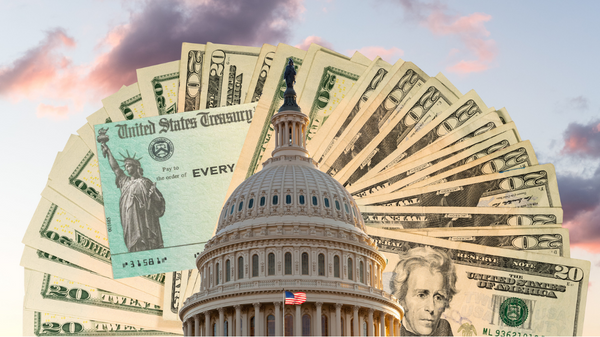(The Center Square) – President Joe Biden and U.S. House Speaker Kevin McCarthy reported productive talks Monday on a debt ceiling compromise, but have yet to announce a breakthrough ahead of a potential June 1 deadline.
“I just concluded a productive meeting with Speaker McCarthy about the need to prevent default and avoid a catastrophe for our economy,” Biden said in a statement. “We reiterated once again that default is off the table and the only way to move forward is in good faith toward a bipartisan agreement.”
But the two sides remain far apart on a deal to lift the debt ceiling.
“President Biden and I just had a productive meeting in our negotiation to responsibly raise the debt limit,” McCarthy said after the meeting. “It should have happened months ago, but there is a path for him to avoid defaulting on the debt.”
McCarthy ruled out cuts to defense spending.
“Defense should not be on the table,” he said.
Negotiators will continue talks through the night, McCarthy said.
McCarthy said new revenue wasn’t an option. He also said a short-term extension wasn’t an option.
U.S. Treasury Secretary Janet Yellen has said lawmakers must raise the debt ceiling by June 1 or risk a default on U.S. debt obligations. When exactly the U.S. will run out of money remains uncertain.
Yellen said June 1 remains a “hard deadline” on Sunday on NBC’s “Meet the Press.” She was not optimistic about potential plans for Biden to use the 14th Amendment to raise the debt limit unilaterally.
It “doesn’t seem like something that could be appropriately used in these circumstances, given the legal uncertainty around it, and given the tight time frame we’re on,” she said.
The debt ceiling is the maximum amount of debt the U.S. Department of the Treasury can issue.
Yellen previously said “a U.S. default would generate an economic and financial catastrophe.”
House Republicans passed a bill to reduce spending by $4.8 trillion and increase the debt limit by about $1.5 trillion, or until March 31, 2024, whichever comes first. The Republican bill would strip energy and environmental tax credits from the Inflation Reduction Act and formally block Biden’s student loan cancellation. It also would put work requirements in place for some federal social programs, such as requiring Medicaid recipients to work 80 hours per month.
The Limit, Save, Grow Act would return total discretionary spending to the fiscal year 2022 level in fiscal year 2024 and cap annual growth at 1% for 10 years, according to the Committee for a Responsible Federal Budget. The Congressional Budget Office has estimated that the measure would reduce budget deficits “by about $4.8 trillion over the 2023–2033 period.”
Originally published by The Center Square. Republished with permission.
For more from Budget & Tax News.
For more public policy from The Heartland Institute.











